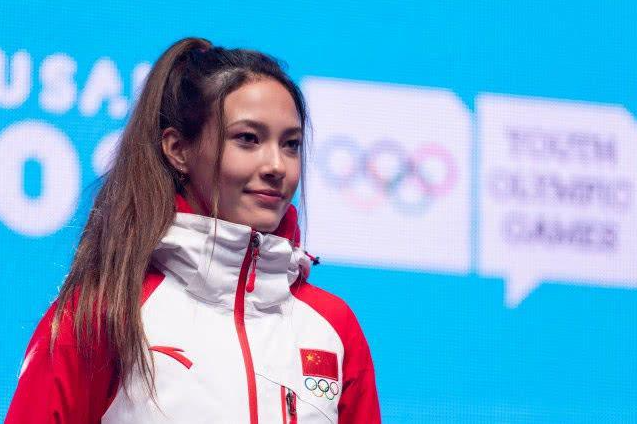
Another Winter Olympics have passed, but the world is still talking about Eileen Gu.
To be biracial and binational in a world of binary thinking is not easy.
Olympic gold-medalist Eileen Gu, affectionately known in China as the “snow princess” has ignited an international firestorm of hot takes on nationality and what it means to “belong” to a country.
“When I’m in the U.S., I’m American,” she likes to say, “but when I’m in China, I’m Chinese.”
San Francisco-born and raised, she is the child of a Chinese mother and an American father of undisclosed identity. She is biracial, and appears to have dual nationality, which U.S. law recognizes but Chinese law does not.
Then again, China is not a country where the rule of law consistently trumps other considerations. According to BBC, Huawei heiress Meng Wanzhou held seven passports. In keeping with China’s practice of extending perks and privileges to a select few, it is likely an exception was made for Gu because she has been deemed to serve China’s national interest.
It should also be noted that American citizens can’t just give up citizenship at will, but must go through a costly and arduous bureaucratic procedure to rid themselves of native-born citizenship to the USA.
The media fascination with Eileen Gu’s nationality brings to mind another famous biracial American by the name of Barack Obama. He, too, had to navigate the identity tightrope of a dual identity, and he, too, hardly knew his father.
But unlike Eileen Gu, who is as tight-lipped about her father as she is about her preferred citizenship, Barack Obama speaks openly and fondly about the father he never knew, poignantly reconstructed in “Dreams of My Father.”
As a politician and president, Barack Obama was dogged by “birther” conspiracy theories from the outset. The intensity and persistence of ill-sourced claims sheds more light on the racially-tinged unease of his critics, including his successor as president, Donald Trump, than on the particulars of his case, though recent research suggests his father may have actually been a CIA asset in Africa.
Eileen Gu has inadvertently touched a raw nerve. Given the pandemic blues, political strife, social unrest and signs of American imperial decline in the face of increasingly bold and brash challenges from Beijing, the idea of a smart, preppy, well-spoken young woman from San Francisco choosing to represent China over the U.S. is hard for many to process.
She is eloquent and outspoken, optimistic and egotistical, but she also can tow the line when need be. She studiously refused, six times by one count, to answer foreign journalist questions in Beijing about whether or not she renounced her American citizenship as Chinese law ostensibly requires.
But a more positive take on her ambivalence is that she is the harbinger of a world where the old rules--you’re either this or your that--don’t hold as tightly as before. Is she on to something? Is it possible she represents a paradigm shift in the way young people look at the world?
Old school Americans, both native born and naturalized, understood you had to choose sides and stick with it. German Americans and Italian Americans fought bravely and unequivocally for the U.S. on the frontlines of two world wars, and Japanese Americans, though denied the chance to fight against Japan due to the insecurities of Euro-Americans about their loyalty, fought with great courage and patriotism in the European theatre of war.
Is it possible, to borrow a concept pioneered in no small part on the streets of San Francisco, that the old binary categories no longer apply?
The age-old male/female dichotomy is being resisted by a new generation informed by notions of gender fluidity, bisexuality, and embracing all the colors of the rainbow. It’s about being what one wants to be by taking pride and control of one’s identity.
During her February 8, 2022, Beijing press conference, Eileen Gu clearly expressed her desire to “live her best life.” She does not seek to make other people happy by being what they want her to be.
As China’s guest athlete of the hour, already celebrated in a drone display and lavish sponsorship deals, she doesn’t conform with conventional notions of race, nationalism and citizenship.
In time, reactionary pressures may force her to make a more binary choice, but for the moment she’s having it all, doing it her way, representing a new kind of world citizen, proud of both sides, defiant in her embrace of duality.